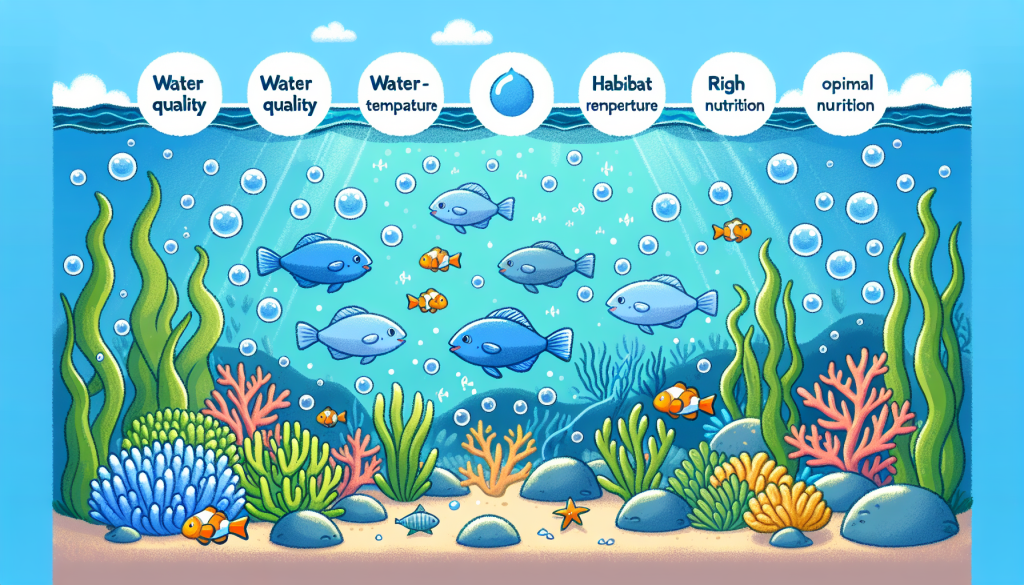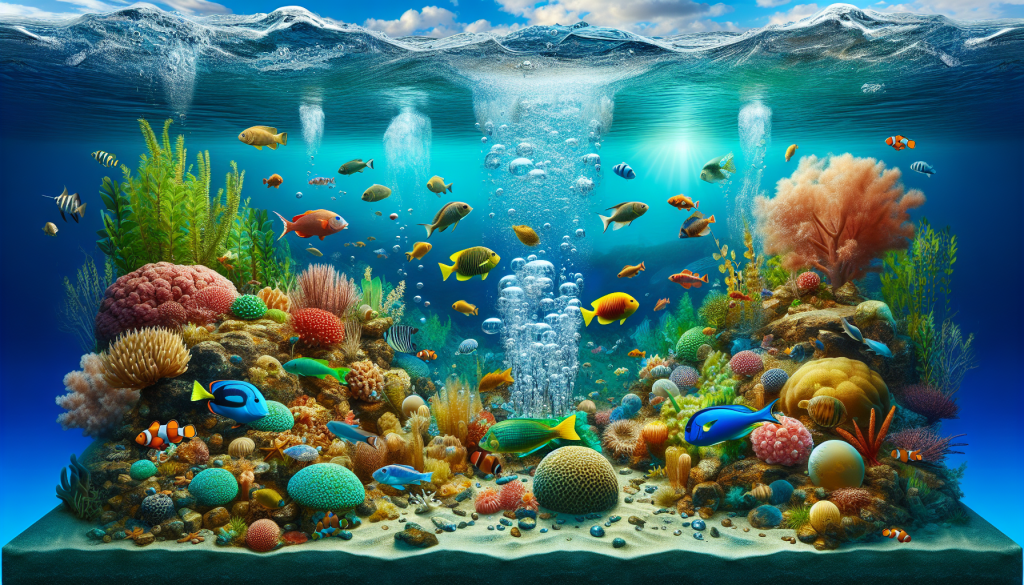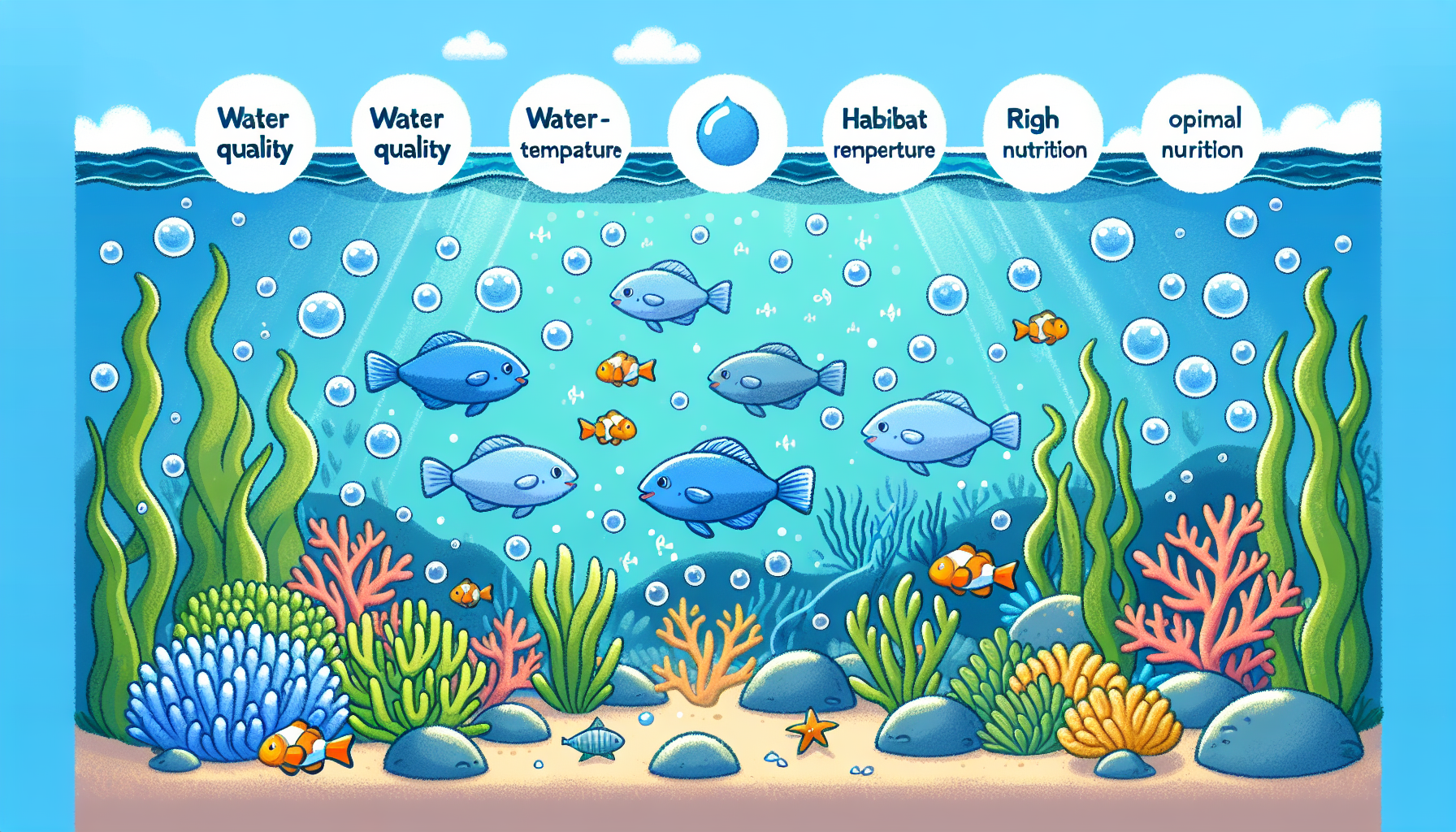Imagine you’re diving into the deep blue ocean, surrounded by vibrant coral reefs and graceful schools of fish. Ever wondered what enables these fascinating creatures to thrive in their aquatic realm? In this article, we’ll explore the essential requirements that fish need to be at their absolute best. So, hold your breath and get ready to uncover the secrets of what truly makes a fish flourish.
What Does Fish Need To Be At?

Water Quality
To thrive and be at their best, fish require optimal water quality. This means that the water they inhabit should be free from any harmful substances or chemicals that could potentially harm them. Fish are highly sensitive to changes in water quality, so it is important to regularly test the water and maintain appropriate levels of pH, ammonia, nitrite, and nitrate. Regular water changes are also necessary to ensure the removal of any accumulated waste or toxins.
Temperature
Maintaining the correct temperature is crucial for the well-being of your fish. Different species have specific temperature requirements, so it is important to research and provide the appropriate conditions. The majority of tropical fish thrive in water temperatures ranging from 75°F to 80°F (24°C to 27°C), while cold-water fish prefer temperatures ranging from 50°F to 70°F (10°C to 21°C). Investing in a reliable aquarium heater or chiller, depending on the needs of your fish, will help to ensure a consistent and suitable temperature for their overall health and comfort.
Oxygen
Just like any other living creature, fish require oxygen to survive. They obtain oxygen through their gills by extracting it from the water. Therefore, it is essential to maintain proper oxygen levels in the aquarium. This can be achieved by using an air pump or installing a filter with an adequate oxygenation feature. Moreover, incorporating live plants in the aquarium not only adds aesthetic beauty but also helps to oxygenate the water during photosynthesis.
Food
Providing a nutritious and balanced diet is essential for the vitality and well-being of your fish. Different species have different dietary requirements, so it is important to feed them accordingly. Fish food comes in various forms such as pellets, flakes, frozen, or live food. It is recommended to feed your fish small amounts multiple times a day to prevent overfeeding and maintain optimal health. Also, remember to remove any uneaten food to prevent water pollution and maintain water quality.

Aquatic Plants
Including aquatic plants in your aquarium not only enhances its visual appeal but also provides several benefits for your fish. Live plants help in enhancing the water quality by absorbing nitrates and reducing algae growth. They also provide shelter, hiding places, and resting spots for fish, as well as a natural food source. Additionally, the plants create a natural and biologically diverse environment that promotes overall fish health and well-being.
Space
Providing an adequate amount of space for your fish is crucial for their physical and mental well-being. Overcrowding an aquarium can lead to stress, aggression, and poor health among fish. As a general rule of thumb, aim for one inch of fish per gallon of water. However, it is important to consider the specific needs and behavior of the fish species you have. Some species require more space to swim and thrive, while others are more territorial and need less space.
Hideouts
Fish, especially shy or territorial species, require suitable hiding spots to feel secure and comfortable. The presence of hiding places can reduce stress and aggression among fish by providing them with a retreat and a sense of security. This can be achieved by incorporating various types of decor, such as caves, driftwood, rocks, or artificial plants. These hiding spots not only fulfill the natural instinct of fish but also provide them with a peaceful environment, promoting their overall well-being.
Reproduction
If you plan to breed fish, it is important to provide the appropriate conditions and environment for successful reproduction. Different species have different breeding requirements, so it is crucial to research and understand the specific needs of your fish. Factors like water parameters, temperature, lighting, and the presence of appropriate breeding surfaces or spawning mops should be considered. Creating a conducive environment for breeding will not only fulfill the natural instincts of your fish but also provide a rewarding experience for the aquarist.
Compatibility
When setting up a community tank or introducing new fish to an existing aquarium, compatibility is a significant factor to consider. Different fish species have different temperaments, behaviors, and compatibility levels. You should research the specific compatibility requirements of the fish you plan to keep to avoid aggression, stress, or unwanted interactions. It is important to ensure that the fish in your aquarium can coexist peacefully and thrive together, creating a harmonious and balanced environment.
Healthcare
Maintaining the health of your fish is crucial for their overall well-being. Regular observation, preventive measures, and prompt action are essential parts of fish healthcare. Keep a close eye on your fish for any signs of illness or distress, such as changes in appetite, abnormal behavior, or physical symptoms. If you notice any issues, promptly consult with a knowledgeable aquarist or veterinarian to diagnose and treat the problem. Additionally, regular water testing, scheduled water changes, and routine maintenance are essential to prevent and mitigate any potential health issues.
In conclusion, providing a suitable and well-maintained environment is essential for the overall health, happiness, and well-being of your fish. By ensuring optimal water quality, maintaining the right temperature and oxygen levels, providing nutritious food, incorporating aquatic plants, offering sufficient space and hiding spots, creating an environment conducive for reproduction, selecting compatible tank mates, and practicing proper healthcare, you can ensure that your fish thrive and are at their best. Remember, a happy and healthy fish will reward you with their vibrant colors, active behavior, and a peaceful underwater kingdom to enjoy.

My name is James Gheen, and I am thrilled to welcome you to Tropical Fish Farmers, the ultimate destination for everything related to tropical fish breeding. As an avid underwater enthusiast, I am dedicated to sharing my knowledge and experience to help you successfully breed and care for tropical fish. Whether you’re a beginner starting your aquarium journey or a seasoned breeder looking to expand your knowledge, my website has something for everyone. Dive into our extensive library of articles, tutorials, and videos covering various topics to enhance your breeding success. Join me in our vibrant community and let’s contribute to responsible fish breeding and conservation efforts together. Discover Tropical Fish Farmers and become part of our global community today.

